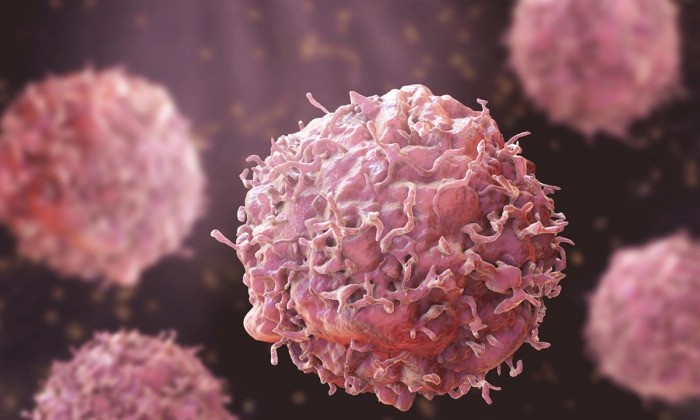|
Getting your Trinity Audio player ready...
|
By Rachel Ann T. Melegrito(Epoch Times)
New research suggests that modern processed food consumption may be fueling colorectal cancer growth, revealing a link between dietary choices and the inflammatory processes that could drive tumor development.
The study, published in Gut on Tuesday, found that chronic inflammation in colorectal cancer (CRC) stems from an abundance of pro-inflammatory omega-6 fats in tumors and insufficient omega-3 fats to neutralize the inflammation. This imbalance hinders the body’s ability to heal and promotes cancer growth.
Both the pro-inflammatory omega-6 and anti-inflammatory omega-3 fats must be obtained through diet, with omega-6 fats being highly prevalent in ultra-processed foods.
“Our presumption—an association, not a cause at this point in time—is that omega-6-rich diets create more pro-inflammatory building blocks, which enzymes in tumors and the body turn into pro-inflammatory fats,” Dr. Timothy Yeatman, professor of surgery at the University of South Florida (USF) Health Morsani College of Medicine, associate center director for Translational Research and Innovation at the Tampa General Hospital (TGH) Cancer Institute, and a corresponding author of the study, told The Epoch Times.
Diet Shapes Cancer Risk
For the study, scientists from the USF and TGH Cancer Institute examined the role of fats and the genes involved in fat metabolism in CRC. They studied 81 pairs of CRC tumor tissue and healthy tissue, focusing on how the body creates and breaks down fats, which can influence inflammation and cancer growth.
The researchers found that high levels of pro-inflammatory omega-6 fats like linolenic acids (LA) and arachidonic acids (AA) drove the cancer.
The findings indicate that diets high in omega-6 fatty acids may contribute to inflammation that facilitates cancer growth.
The Role of Omega-6 Fatty Acids
Excessive intake of omega-6 fatty acids like LAs found in ultra-processed foods and seed oils results in an overproduction of AA in the body. AA is a precursor that gives rise to more pro-inflammatory molecules that can exacerbate inflammation and promote tumor growth.
The body breaks down these omega-6 fatty acids into inflammatory molecules called leukotrienes, Yeatman said, “and that’s what we found in the tumors.”
Leukotrienes activate immune cells, amplify inflammation, and damage tissues, creating an environment conducive to tumor growth in CRC patients.
Ultra-processed foods include meat products such as sausages, hotdogs, chips, sweetened and alcoholic drinks, mass-produced bread, condiments, and ice cream.
Inflammation: A Strong Link to Diet
In healthy tissues, the body transitions from inflammation to healing through a process called lipid class switching, where pro-inflammatory molecules shift to anti-inflammatory fats like prostaglandins, which signal tissue repair.
Inadequate or ineffective levels of prostaglandin leads to defective class switching, resulting in unresolved inflammation. Prostaglandin also prevents the body from turning omega-6 fatty acids into inflammatory leukotrienes.
The research team observed that CRC tumors produce excessive pro-inflammatory molecules while exhibiting 70 percent lower levels of prostaglandins, essential for resolving inflammation. This deficiency disrupts the lipid class-switching process, perpetuating an environment that promotes tumor growth and survival.
Chronic inflammation fosters a microenvironment conducive to immunosuppression, allowing genetic mutations to persist and ultimately manifest as cancer, Yeatman said.
“We found that over the decades, starting around the 50s, the levels of omega-6 in our body fat have increased dramatically,” he added. “So what’s changed in our diet since then? It’s largely the rise of ultra-processed foods and big agriculture, driven by making food production much cheaper. As a result, less expensive seed oils are used as opposed to more pro-resolving oils, like olive and avocado oils.”
Problematic Immune Cells
Specialized white blood cells, which promoted inflammation in the tumors studied, were also key contributors to CRC. These immune cells initially get drawn to the tumor site to kill the cancer but instead become transformed to facilitate tumor growth.
Yeatman said that this behavior has been observed in other cancers.
“The same processes are likely involved in heart disease, in diabetes, in Alzheimer’s disease,” he added.
What Can Be Done?
Yeatman said we should be mindful of our diets and look at ingredient labels.
“These results (study findings) underscore the need for additional studies that explore what specifically in our diet drives a person’s risk of tumor formation,” Dr. Raaj Mehta, instructor in medicine at Harvard Medical School, attending physician at Massachusetts General Hospital, and not part of the study, told The Epoch Times. “Prevention is essential. We need better ways to counsel our patients about what not to eat and why.
“Hundreds of studies have shown a connection between what we eat and our risk for colorectal cancer. We think this may be mediated by the trillions of bacteria in our digestive tract.”
While little is known about how preservatives and artificial sweeteners affect the microbiome, Yeatman said the microbiome is a critical component in cancer development because it’s the microbiome that processes fats and turns them into different compounds.
“We are supersaturated with arachidonic acid, which is omega-6,” he said. As omega-6 is an essential fatty acid, Yeatman emphasized that he is not saying it’s a bad oil but that too much of anything is bad. “So you should be eating a balanced one-to-one ratio.”
The findings of this study also introduce the concept of resolution medicine, a natural approach to treating inflammation. “It’s based on a concept that natural agents may induce lipid class switching,” Yeatman said.
The study opens the door for new avenues for treatment alongside traditional methods, including resolvin therapies, which use natural agents such as frankincense, cannabidiol (CBD) oil, and celastrol to support this metabolic shift, gene targeting to alter pro-inflammatory pathways, and reprogramming the tumor microenvironment to enhance anti-inflammatory responses.






